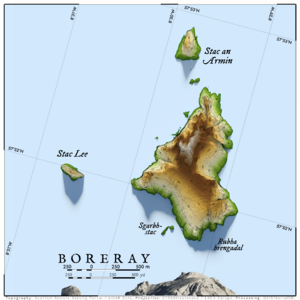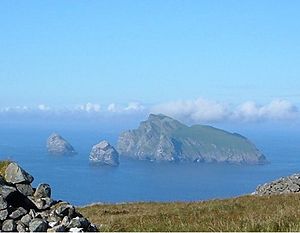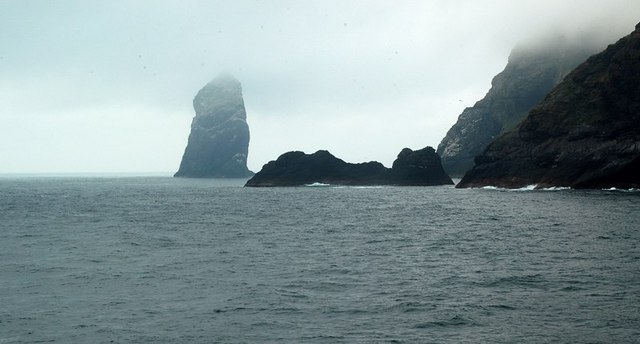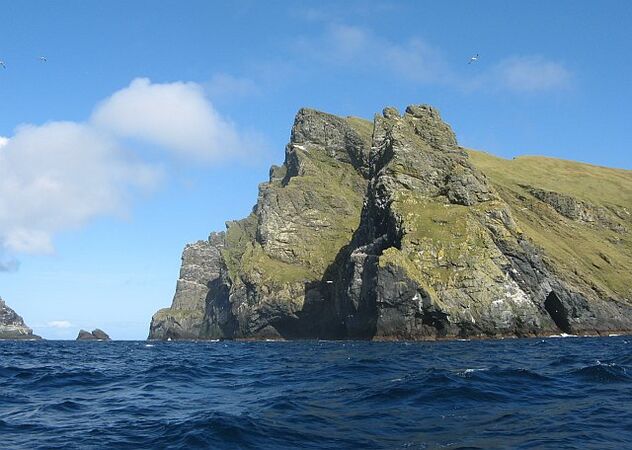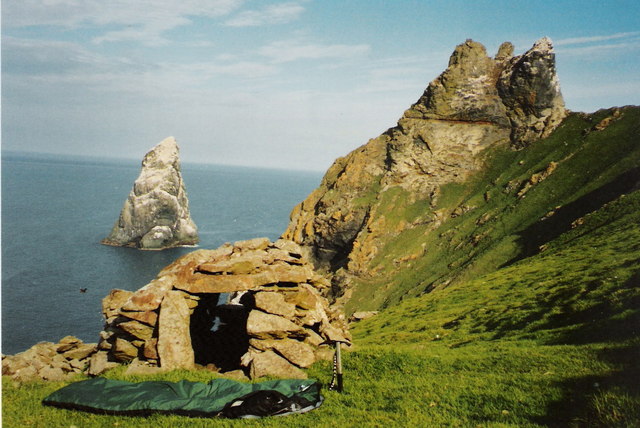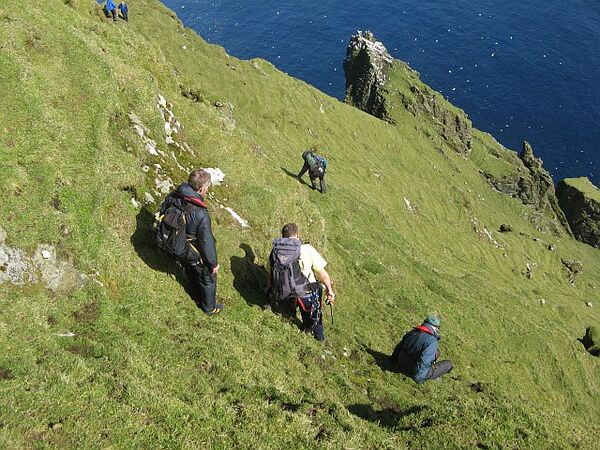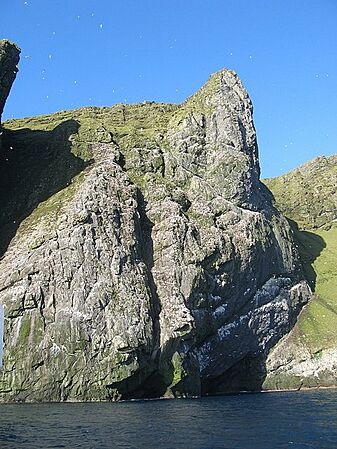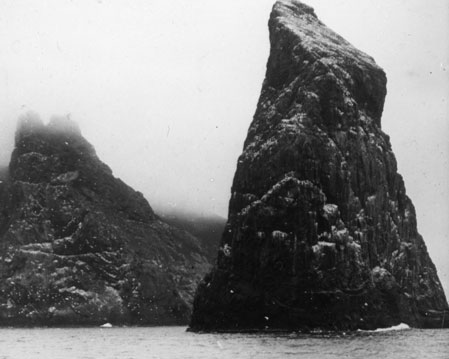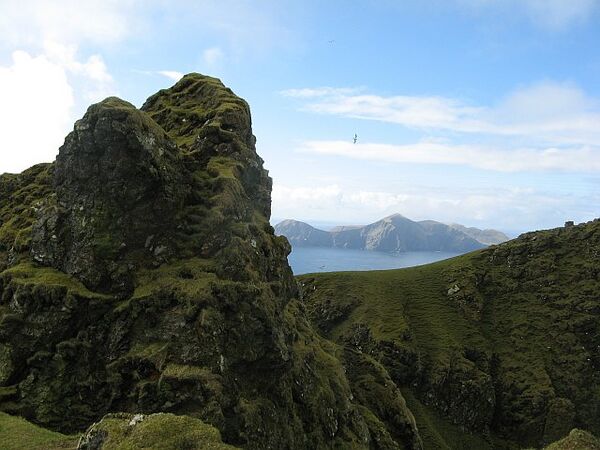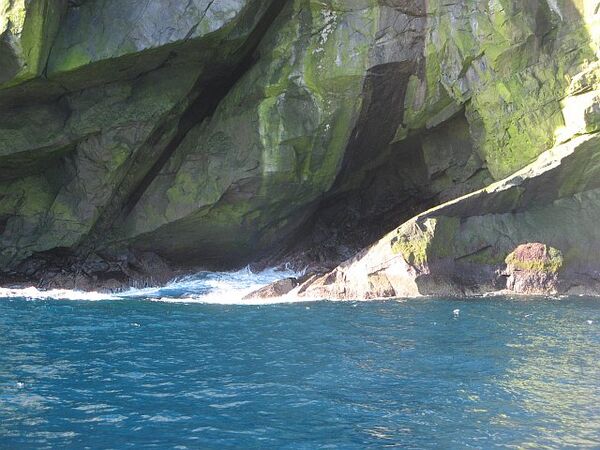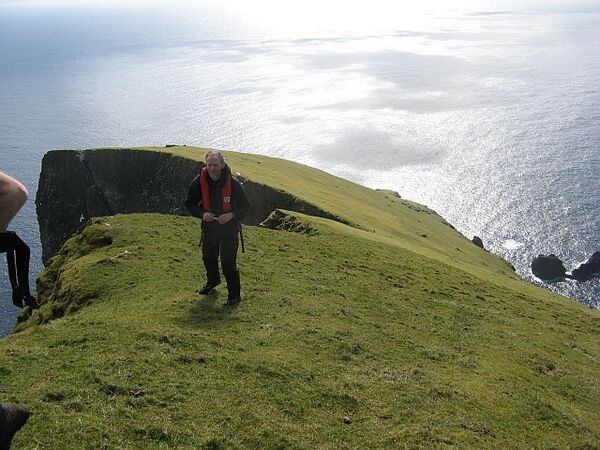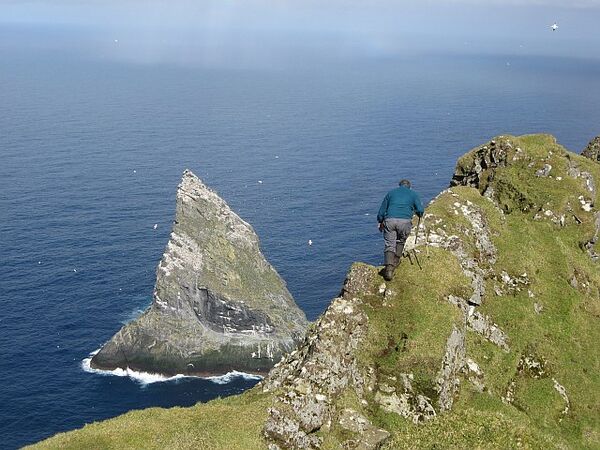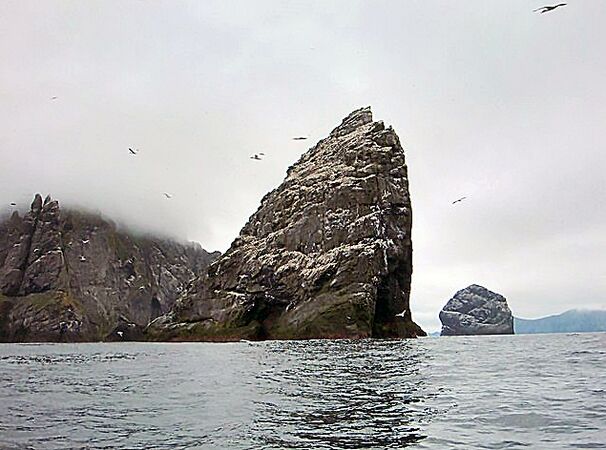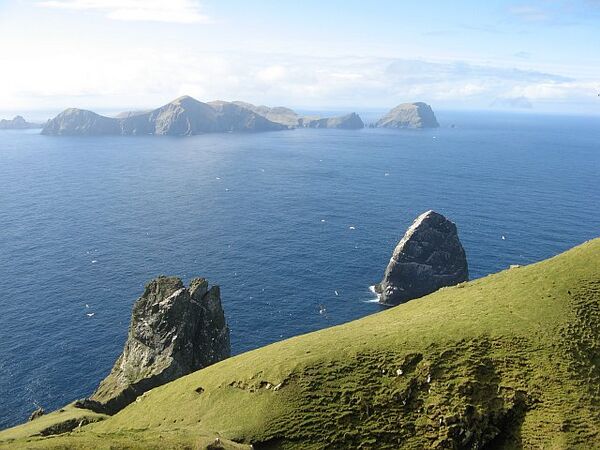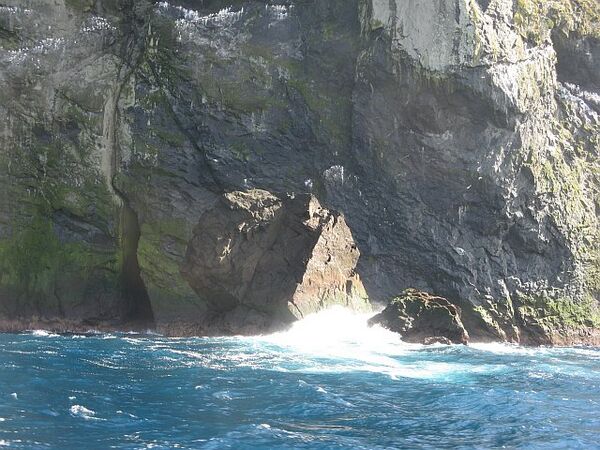Boreray, St Kilda facts for kids
| Gaelic name | Boraraigh |
|---|---|
| Meaning of name | "Fort island", from Norse |
| OS grid reference | NA153053 |
| Coordinates | 57°52′N 8°30′W / 57.87°N 8.5°W |
| Physical geography | |
| Island group | St Kilda |
| Area | 86 ha (11⁄32 sq mi) |
| Area rank | 155= |
| Highest elevation | Mullach an Eilein 384 m (1,260 ft) |
| Administration | |
| Sovereign state | United Kingdom |
| Country | Scotland |
| Council area | Na h-Eileanan Siar |
| Demographics | |
| Population | 0 |
Boreray (Scottish Gaelic: Boraraigh; Scots: Boreray) is an island where no one lives. It is part of the St Kilda group of islands in the North Atlantic Ocean.
Contents
Geography of Boreray
Boreray is about 66 kilometers (41 miles) west-northwest of North Uist. The island covers about 77 hectares (0.3 square miles). Its highest point is called Mullach an Eilein, which is 384 meters (1,260 feet) high.
| Mullach an Eilein | |
|---|---|
| Highest point | |
| Elevation | 384 m (1,260 ft) |
| Prominence | 384 m (1,260 ft) |
| Listing | Marilyn |
| Naming | |
| English translation | Top/upper part of the island |
| Language of name | Scottish Gaelic |
| Pronunciation | Scottish Gaelic: [ˈmul̪ˠəx ən̪ˠ ˈjeʎɛɲ] |
| Geography | |
| Location | St Kilda, Scotland |
| OS grid | NA153053 |
| Topo map | OS Landranger 18 |
Boreray is made of strong rocks called gabbro and dolerites.
Sea Stacks Near Boreray
There are two tall, pillar-shaped rocks called sea stacks just off Boreray.
- Stac An Armin is to the north. It is 196 meters (643 feet) tall.
- Stac Lee is to the west. It is 172 meters (564 feet) tall.
Boreray is the smallest island in Scotland that has a peak over 300 meters (1,000 feet) high.
History of Boreray
Boreray has special stone shelters called Cleitean MacPhàidein. These were used by people from Hirta, another St Kilda island. They stayed here when they came to hunt birds. In 1727, some men and boys were stuck on Stac an Armin for many months. This happened because of a smallpox sickness on Hirta.
Ancient Buildings on Boreray
You can also find the ruins of Taigh Stallar (the steward's house) on Boreray. Local stories say it was built by a "Man of the Rocks." He supposedly led a rebellion against the landlord's steward.
Experts think it might be an Iron Age wheelhouse. This is a type of ancient round house. In 2011, they also found signs of old farms and other possible settlements nearby.
An expert named Ian Parker said that this discovery shows people actually lived and farmed on Boreray a very long time ago. He noted that farming on such a remote and steep island would have been incredibly hard.
Ownership and World Heritage Status
In 1931, an expert on birds, John Crichton-Stuart, 5th Marquess of Bute, bought the islands. After he passed away in 1957, he gave them to the National Trust for Scotland (NTS). The NTS owns the islands today.
The St Kilda islands, including Boreray, became a World Heritage Site in 1986. This means they are very special because of their amazing natural beauty and important wildlife. In 2004, the area was made even bigger to include the sea around the islands. Then, in 2005, it also got special recognition for its cultural history. This makes St Kilda one of the few places in the world with both natural and cultural World Heritage status.
Wildlife on Boreray
The tall cliffs of Boreray are home to many different seabirds. In 1959, about 45,000 pairs of gannets were counted on the island and its two sea stacks. There are also over 130 types of flowering plants growing on Boreray.
Rare Sheep Breed
The island is also home to a very rare type of sheep called the Boreray sheep. They are sometimes called the Boreray Blackface. These sheep are small and have horns. They are the rarest breed of sheep in the United Kingdom. They are different from the Soay sheep, which also come from the St Kilda islands.
Images for kids
See also
 In Spanish: Boreray (Saint Kilda) para niños
In Spanish: Boreray (Saint Kilda) para niños
 | Selma Burke |
 | Pauline Powell Burns |
 | Frederick J. Brown |
 | Robert Blackburn |


